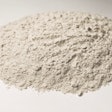Canine osteoarthritis is a joint disease commonly seen in veterinary practice, especially in dogs as they age. It may affect more than 90% of dogs over 5 years old (Bennet, 1991, Servet et al., 2006). In severe cases, it can cause chronic pain, lameness and disability.
Osteoarthritis is a degenerative and inflammatory condition in which a loss of cartilage matrix is associated with a release of pro-inflammatory cytokines. Since the disease cannot be cured, management aims at the relief of pain by reducing inflammatory reactions and further breakdown of cartilage. Treatment may involve the use of non-steroidal anti-inflammatory drugs to decrease inflammation and pain, but these drugs can cause side effects such as vomiting and diarrhea.
Various nutraceuticals on the market are promoted as safe, effective compounds to manage canine osteoarthritis. They are administered as supplements or incorporated into commercial dog foods. However, the efficacy of generally applied nutraceuticals can be questioned, because studies have highlighted the use of inappropriate experimental designs and/or the generation of equivocal results (Aragan et al., 2007; Beynen, 2008; Budsberg and Bartges, 2006; Henroitin et al., 2005).
The ideal nutraceutical
Nutraceuticals are dietary supplements in a purified or extracted form that are safe and have health and well-being benefits. In clinical trials, an effective nutraceutical must provoke better effects than a placebo and should do so through a likely mechanism of action.
For a nutraceutical to have a scientific basis in the treatment of canine osteoarthritis, it should be possible to explain in molecular terms how it inhibits inflammation and/or inhibits breakdown of the cartilage matrix. In addition, the nutraceutical should have a statistically significant, positive effect in randomized, double-blind, placebo-controlled trials.
Gelatin hydrolysate
Gelatin hydrolysate is a purified, enzymatically treated protein derived from collagen in bone and skin of swine and cattle. The protein has a typical and unique amino acid composition: It is very rich in glycine, proline and hydroxyproline.
Used as component of many human foods, gelatin hydrolysate is generally considered safe. Within the European Union, gelatin hydrolysate from either ruminant or non-ruminant origin is approved for incorporation in the feed of all species. Gelatin hydrolysate can be used in dry dog foods; it is heat stable and thus can be added to the ingredient mixture prior to extrusion.
Proving efficacy
Weide (2004) studied the possible beneficial effect of gelatin hydrolysate in 20 dogs with osteoarthritis. The dogs received 20 g gelatin hydrolysate in addition to their regular diet. After four months, there was a significant decrease in the severity of lameness-the score fell from an initial value of 1.73 to 0.84 on a 0-4 scale-but because of the open nature of the study and the absence of a placebo group, the decrease cannot be taken as proof of a beneficial effect. It is very likely that placebo effects occur when evaluating the clinical signs of dogs with osteoarthritis (Dobenecker et al., 2002; Gingerich and Strobel, 2003; Innes et al., 2003; Schoenherr, 2005; Pollard et al., 2006).
My colleagues and I conducted a double-blind, placebo-controlled trial with privately owned dogs earlier this year to assess the efficacy of gelatin hydrolysate in the treatment of osteoarthritis. The owners used a questionnaire to evaluate their dogs' clinical signs. For eight weeks, 15 test dogs daily received 10 g of gelatin hydrolysate (Rousselot ADF from Vion Ingredients); another 15 dogs received the placebo, soya protein isolate. The supplements were mixed with same dry food for all dogs.
The administration of gelatin hydrolysate significantly improved the signs of activity (vitality), stiffness and lameness ( Figure 1 ). Interestingly, the effect on lameness seen by Weide when transformed to a 0-10 scale is similar to that presented in Figure 1. This could indicate that 10 g of gelatin hydrolysate per day would be as equally effective as 20 g.
Though Weide's trial by itself cannot be taken as evidence for a beneficial effect, that data combined with the results of our study do point to efficacy of gelatin hydrolysate in the treatment of canine osteoarthritis. It should be noted that studies in human patients with osteoarthritis also have shown a reduction in pain and functional improvement after oral administration of gelatin hydrolysate (Barnett et al., 1998; Moskowitz, 2000).
Mechanism of action
Collagen in the cartilage matrix and gelatin hydrolysate share a similar amino acid composition. Research in mice has demonstrated that after oral administration of radio-labeled gelatin hydrolysate, the radioactivity was specifically found in cartilage (Oesser et al., 1999). Also, there are indications that the amino acids in gelatin hydrolysate stimulate the synthesis of collagen cartilage (Lippiello et al., 1977).
The decrease in the severity of lameness in Weide's trial was associated with increased blood concentrations of glycine, proline and hydroxyproline and a lowering of the plasma content of matrix metalloproteinase-3 (MMP-3). MMP-3 is involved in the degradation of collagen molecules in the cartilage matrix. It could thus be suggested that the positive effect of gelatin hydrolysate is caused, at least in part, by inhibiting the degradation of collagen in the cartilage matrix. Possibly, inhibition of cartilage breakdown is associated with a reduction in inflammation and pain.
Beneficial dose
In our study, dogs weighing on average 32 kg each were given 10 g of gelatin hydrolysate per day. The dogs would require about 450 g of dry food daily for maintenance, indicating that a dose of about 2.5% in dry food would be beneficial for dogs with osteoarthritis.


.jpg?auto=format%2Ccompress&fit=crop&h=167&q=70&w=250)
.jpg?auto=format%2Ccompress&fit=crop&h=167&q=70&w=250)













